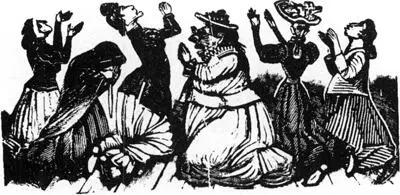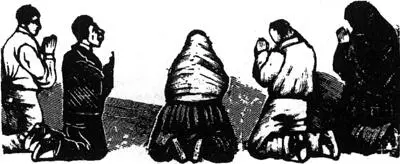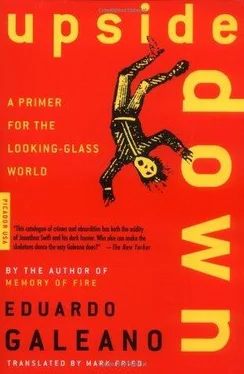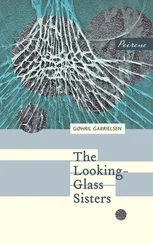Faces and Masks/1
Only the poor are condemned to be ugly and old. The rest can buy the hair, noses, eyelids, lips, cheekbones, tits, bellies, asses, thighs, or calves they need to correct the errors of nature and slow the passage of time. The operating rooms of plastic surgeons are shopping malls where you can find the face, body, and age you seek. “Surgery is a necessity of the soul,” explains Argentina’s answer to Rodin, Roberto Zelicovich. In Lima, billboards offer perfect noses and white skin for every pocketbook that can afford them. Peruvian television interviews a young man who replaced his aquiline Indian nose with a little meatball that he proudly displays, full-face and in profile. He says now he scores with the girls.
In cities like Los Angeles, São Paulo, and Buenos Aires, those with money can indulge in the luxury of going to the operating room the way the rest of us go to the dentist. After a few years and several operations, they all look alike. The men have faces like mummies without wrinkles, the women look like Dracula’s girlfriend, and they’re all bound to have trouble expressing themselves. When they wink, their belly buttons jump.
Faces and Masks/2
Latin American cities also get face-lifts to wipe away their age and erase their identities. Without their wrinkles or long noses, cities lose their memory. They seem less and less like themselves and more and more like one another.
The same tall prisms, cubes, and cylinders form the urban skyline, all crowned by the names of international brands in gigantic letters. In this era of obligatory cloning, advertisers are the real urban planners.
The consuming masses take orders in a language that is universal; advertising has achieved what Esperanto could not. Every person everywhere understands what television broadcasts. Over the past quarter of a century, global spending on advertising has doubled. Thanks to that small fact, poor children drink more Coca-Cola and even less milk, and leisure time is eaten up by obligatory consumption. Free time, time imprisoned: the homes of the very poor have no beds, but they have TVs and the TV has the floor. Bought on credit, this little beast is proof of the democratic nature of progress. It listens to no one but speaks for all. Poor and rich alike thus learn the virtues of the latest car, and poor and rich alike discover the favorable interest rates offered by one bank or another.
“A poor person is someone who has no one,” an old woman who talks to herself in the streets of São Paulo says repeatedly. People are ever more numerous and ever more alone. These crowded, lonely souls are then packed into big cities. “Would you please mind taking your elbow out of my eye?” they ask.
Experts know how to turn merchandise into magic charms against loneliness. Things have human attributes: they caress, accompany, understand, help. Perfume kisses you; your car never lets you down. Consumer culture has found in solitude the most lucrative of markets. Holes in your heart can be stuffed with things — or with dreams of things, anyway. And things can be more than embraces, they can be symbols of social mobility, passports to get you by the border guards of class society, keys that open doors usually locked tight. The more exclusive, the better; things lift you out of the crowd and save you from being nobody. Rarely does advertising tell you about the product being sold. That’s the least of it. Advertising’s primary function is to compensate for frustrations and feed fantasies. Whom do you wish to become by buying this aftershave?

Criminologist Anthony Platt observed that street crime is more than the fruit of extreme poverty. It is also the result of the ethics of individualism. The obsession with success, says Platt, plays a decisive role in the illegal appropriation of things. I’ve always heard that money can’t buy happiness, but every poor TV viewer has ample grounds for believing money can buy something so close to happiness that the difference can be left to specialists.

According to historian Eric Hobsbawm, the twentieth century put an end to the seven thousand years of human life based on agriculture that started at the end of the Paleolithic age with the first farming communities. The world’s population is becoming urban, peasants are becoming citizens. In Latin America we have empty fields and enormous urban ant-hills. Driven off the land by modern export agriculture and the erosion of their plots, peasants invade the shantytowns. They believe God is everywhere, but by experience they know he keeps office hours in the city. Cities promise jobs, prosperity, a future for the children. In the countryside, the hopeful watch life pass by and die yawning; in the cities, life happens and beckons. Packed into slums, the newly arrived soon discover that there aren’t enough jobs for the many hands, that nothing is free, and that the most expensive luxuries are air and silence.
At the dawn of the fourteenth century, Father Giordano da Rivalto of Florence offered an elegy to cities. He said that they grow “because people take pleasure in being together.” Being together, meeting. Now who meets whom? Does hope meet up with reality? Do desires meet up with deeds? And people, do they meet other people? If human relations have been reduced to the relations among things, how many people meet up with things?
The world is becoming a huge TV screen: look and listen but don’t touch. Merchandise on display invades and privatizes public spaces. Bus and train stations, until not long ago meeting places for people, are being turned into commercial bazaars.
The shopping mall, a store window to top all store windows, lords it over us with its imposing presence. Multitudes make the pilgrimage to this, the grandest of all temples, for celebrating the mass of consumption. Most of the devotees contemplate in ecstasy the things they can’t afford, while the buying minority submits to the withering bombardment of relentless sales pitches. Going up and down the escalators the crowds travel the world; they watch mannequins dress in fashions from Paris or Milan and listen to stereos that sound as they would in Chicago, and to see and hear all this you pay no fare. Tourists from the hinterlands or from cities still free of this blessing of modern happiness pose for pictures beside the best-known international brands the way they used to pose in the plaza beneath the statue of a national hero. For poor residents of the outskirts, notes Argentine sociologist Beatriz Sarlo, the traditional weekend trip downtown has been replaced by an excursion to one of these urban oases. Spruced up and dressed in their Sunday best, the guests arrive at the party well aware they can only be wallflowers. Entire families board the space capsule to tour the universe of consumption and contemplate the hallucinatory display of models, brands, and labels served up by the aesthetics of the market.
The Days
We don’t know if Christmas celebrates the birth of Jesus or of Mercury, god of commerce, but surely it’s Mercury who thought up mandatory shopping days: Father’s Day, Mother’s Day, Children’s Day, Grandparent’s Day, Valentine’s Day, Friendship Day, Secretary’s Day, Policeman’s Day, Nurse’s Day. Every year there are more Somebody Days on the commercial calendar.
At this rate, soon we’ll have days to honor the Unknown Scoundrel, the Anonymous Corrupt Official, and the Last Surviving Worker.
Читать дальше













